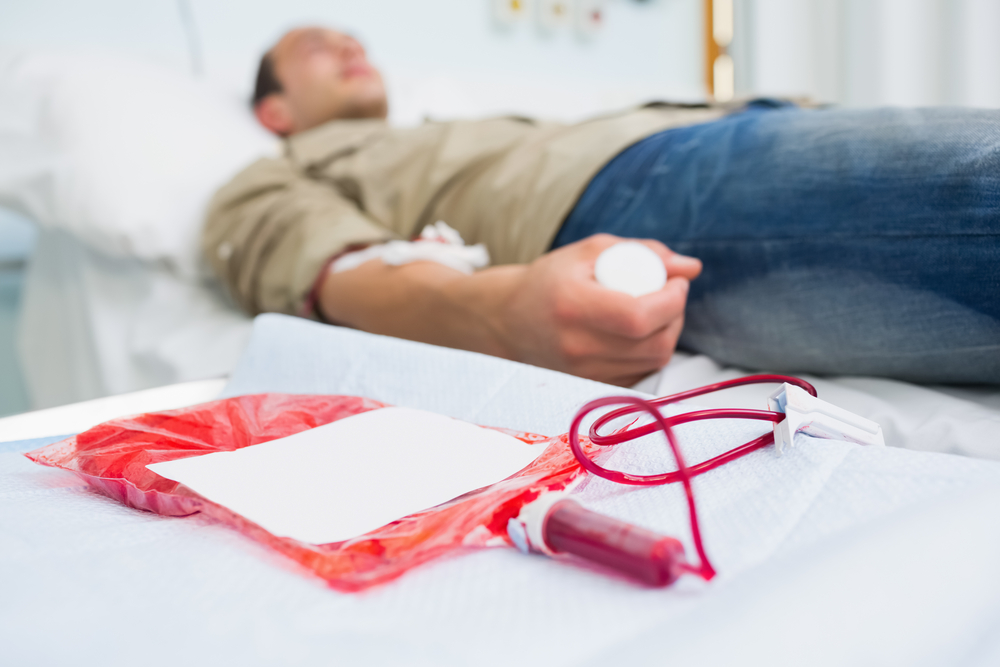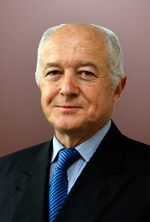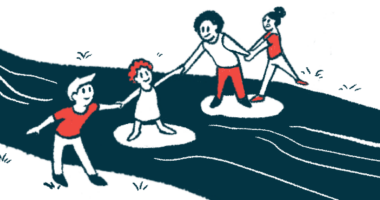Neovacs Establishes U.S. Subsidiary For Expansion Of Lupus Vaccine Candidate IFN-Kinoid Clinical Initiatives

Paris, France based Neovacs, a biotech firm specializing in active immunotherapies for treating autoimmune diseases, has announced establishment of a wholly-owned U.S. subsidiary, Neovacs, Inc., which is headquartered in Boston and incorporated in Delaware.
Creation of a U.S. subsidiary is an important strategic step for Neovacs in extending clinical initiatives for its lead product candidate, IFN-Kinoid, beyond the European Union countries and into the U.S. market. Establishment of the U.S. subsidiary follows the company’s formation of a U.S. Scientific Advisory Board in October 2013.
IFN-Kinoid is an anti interferon alpha (IFN) therapeutic vaccine developed for treatment of lupus (or Systemic Lupus Erythematosus, SLE) — a severe systemic and chronic autoimmune disease in which the immune system dysfunctionally produces antibodies to cells within the body that attack and destroy healthy tissue. These autoantibodies cause inflammation, pain, widespread inflammation, and tissue damage. Lupus primarily affects women of childbearing age, and can cause severe complications that necessitate aggressive therapies. However, men, children, and teenagers can also develop lupus, women of color are two to three times more likely to develop lupus than Caucasians, and people of all races and ethnic groups can develop lupus.
The Lupus Foundation of America says its research estimates that at least 1.5 million Americans have lupus, but that the actual number may be higher since there have been no large-scale studies to determine the actual number of people in the U.S. living with lupus. More than 16,000 new cases of lupus are reported annually across the country.
There is currently no targeted therapy for lupus: only one new treatment has been granted market approval for treating this condition over the past 50 years.
Neovacs notes that medical and scientific research has determined that IFN can play a key role in some patients in causation and development of lupus, so logically targeting IFN could potentially be a powerful therapeutic strategy for addressing this chronic disease.
Neovacs says its own research shown that the self antibodies produced by administration of Ifn-Kinoid can neutralize all 13 IFN sub-types in the serum of lupus patients, and maintains that this breadth of activity supports positioning of Neovacs’ therapeutic vaccine as a next-generation lupus treatment.
The company notes that a phase I/II clinical trial of IFN-Kinod in lupus patients conducted in 2010-2011 yielded very promising final results that were presented at the American College for Rheumatology Annual Meeting-Chicago in 2011 and published in 2013 in the journal Arthritis & Rheumatology.
 “This publication in Arthritis & Rheumatism of the clinical results obtained with IFN-Kinoid in lupus shows once again the interest of the scientific community in our work in auto-immune diseases,” commented Pierre Vandepapelière, who was at the time Neovacs’ Chief Medical Officer, in a release. “We believe the Kinoid is the only treatment able to induce polyclonal antibodies that effectively neutralize all subtypes of interferon-alpha present in lupus and, based on what has been published to date, it does so at a much higher level than other products also targeting IFN? have been able to achieve.”
“This publication in Arthritis & Rheumatism of the clinical results obtained with IFN-Kinoid in lupus shows once again the interest of the scientific community in our work in auto-immune diseases,” commented Pierre Vandepapelière, who was at the time Neovacs’ Chief Medical Officer, in a release. “We believe the Kinoid is the only treatment able to induce polyclonal antibodies that effectively neutralize all subtypes of interferon-alpha present in lupus and, based on what has been published to date, it does so at a much higher level than other products also targeting IFN? have been able to achieve.”
The journal article, co-authored by Bernard Lauwerys MD-PHD of the Catholic University of Louvain, the University Clinics of Saint-Luc in Belgium, and the Neovacs’ scientific team, concluded that active immunization with the Kinoid is a novel and potentially effective approach in the treatment of lupus. The article was based on the results of Phase I/II study IFN-Kinoid in lupus, and published for the first time in November 2011 during the annual meeting of the American College for Rheumatology (ACR).
 Professor Frederic Houssiau, Head of Rheumatology at the Universitè Catholique de Louvain, Brussels, Belgium, and lead investigator of the study, commented: “Lupus is a serious, multifaceted disease that remains a therapeutic challenge for physicians. Interferon alpha (IFNa) plays an important role in this disease and treatment neutralizes IFNa is a logical therapeutic approach. We have shown that the Kinoid effectively neutralized and safely gene expression associated with overexpression of IFN and this translates into a positive impact on certain markers of the disease. These results are very encouraging for the future of this new therapeutic approach.”
Professor Frederic Houssiau, Head of Rheumatology at the Universitè Catholique de Louvain, Brussels, Belgium, and lead investigator of the study, commented: “Lupus is a serious, multifaceted disease that remains a therapeutic challenge for physicians. Interferon alpha (IFNa) plays an important role in this disease and treatment neutralizes IFNa is a logical therapeutic approach. We have shown that the Kinoid effectively neutralized and safely gene expression associated with overexpression of IFN and this translates into a positive impact on certain markers of the disease. These results are very encouraging for the future of this new therapeutic approach.”
Commenting specifically on the results, Dr. Vandepapelière, who is currently CEO of the Belgian technology-driven Biotech company ImCyse, noted: “The neutralization of the expression of genes overexpressed clearly correlated with antibodies induced by the Kinoid and association with major changes in anti-DNA antibody levels and complement C3 in patients as indicative of primary importance to a promising therapeutic activity.”
The detailed analysis demonstrates presence of anti-interferon antibodies (IFNa) in 100 percent of patients receiving IFN alpha-Kinoid, confirming that administration of IFNa-Kinoid, including the highest doses of 120 and 240 mcg, significantly reduced (p = 0.0001) over-expression of genes related to interferon (signature interferon) and those involved in lupus disease (lupus signature). A very important new observation, as a first indication of the role of Kinoid in reducing the severity of symptoms of the disease, is a significant correlation (p = 0.04) between the anti-IFN antibody levels and the favorable evolution of an important biomarker for lupus, ie: an increase of complement C3 levels. An association between decreased overexpression of genes related to interferon and lower anti-DNA autoantibody levels, another marker of SLE, was also noted.
 “These results confirm that the Kinoids developed by Neovacs’ outstanding scientific team and partners have the potential to become the breakthrough treatment for auto-immune diseases. Roche /Genentech’s decision to initiate a phase III of its monoclonal antibody targeting interferon alpha also lends validation to our approach with the IFN-Kinoid. The pharmaceutical industry’s renewed interest in lupus is clear and it is growing,” observed then Neovacs CEO Guy-Charles Fanneau de la Horie.
“These results confirm that the Kinoids developed by Neovacs’ outstanding scientific team and partners have the potential to become the breakthrough treatment for auto-immune diseases. Roche /Genentech’s decision to initiate a phase III of its monoclonal antibody targeting interferon alpha also lends validation to our approach with the IFN-Kinoid. The pharmaceutical industry’s renewed interest in lupus is clear and it is growing,” observed then Neovacs CEO Guy-Charles Fanneau de la Horie.
An earlier study published in the journal Proceedings of the National Academy of Sciences (PNAS), entitled “IFN kinoid vaccine-induced neutralizing antibodies prevent clinical manifestations in a lupus flare murine model“ (doi: 10.1073/pnas.0900615106), coauthored by Daniel Zagury, who has served as Director of Neovacs SA since 2010, and research colleagues, noted that major involvement of IFN in the etiopathogenesis of systemic lupus erythematosus has been suggested by clinical observations, including the increase of serum levels of this cytokine in patients with active disease.
Neovacs is currently seeking potential partners to continue clinical development of IFN-Kinod.
 Arlene Morris, Director of Neovacs and CEO of Syndax Pharmaceuticals, has been named Chairman of the Neovacs, Inc. U.S. subsidiary, and Neovacs’ current CEO Miguel Sieler will also hold the position of CEO of the subsidiary.
Arlene Morris, Director of Neovacs and CEO of Syndax Pharmaceuticals, has been named Chairman of the Neovacs, Inc. U.S. subsidiary, and Neovacs’ current CEO Miguel Sieler will also hold the position of CEO of the subsidiary.
“We are thrilled to expand our U.S. operations through the formation of Neovacs, Inc., and believe that the subsidiary will be instrumental to our ongoing clinical and regulatory efforts in support of IFNKinoid in  systemic lupus erythematosus (lupus) and dermatomyositis,” Mr. Sieler observes. “The United States has the world’s highest lupus prevalence, totalling over 1.5 million reported cases, and the unsatisfactory treatment options create a substantive opportunity for Neovacs as we continue to advance IFN-Kinoid for this indication. Based on our analysis of IFN-Kinoid to date, we believe the compound has significant potential in the treatment of lupus, and look forward to the ongoing development of the product as we work to bring potential relief to this large patient population.”
systemic lupus erythematosus (lupus) and dermatomyositis,” Mr. Sieler observes. “The United States has the world’s highest lupus prevalence, totalling over 1.5 million reported cases, and the unsatisfactory treatment options create a substantive opportunity for Neovacs as we continue to advance IFN-Kinoid for this indication. Based on our analysis of IFN-Kinoid to date, we believe the compound has significant potential in the treatment of lupus, and look forward to the ongoing development of the product as we work to bring potential relief to this large patient population.”
A phase IIa clinical trial of IFN-Kinoid is planned to launch in early 2016, and Neovacs is also planning to launch further U.S. trials of IFN-Kinoid in dermatomyositis, an orphan skin and muscular disease, in the short-to-mid term.
Neovacs, Inc.’s role will be to raise the company’s profile with the U.S. medical and financial communities, and to work directly with the U.S. Food and Drug Administration as the company prepares to initiate its planned lupus and dermatomyositis trials, including securing all regulatory approvals and potential orphan drug status for IFN-Kinoid in dermatomyositis.Neovacs, Inc. will also co-lead all U.S. clinical trials the parent firm in coordination with contractors and research centers, and work to strengthen Neovacs’ engagement with American investors.
Neovacs, Inc. will be located in Boston within the French Tech Hub, which serves as the U.S. Hub for entrepreneurial and innovative French companies. The French Tech Hub provides custom-tailored services to help its clients strategize, launch, expand, and achieve their business potential.
Sources:
Neovacs
Neovacs, Inc.
The Lupus Foundation of America
Arthritis & Rheumatism
Proceedings of the National Academy of Sciences
The French Tech Hub






